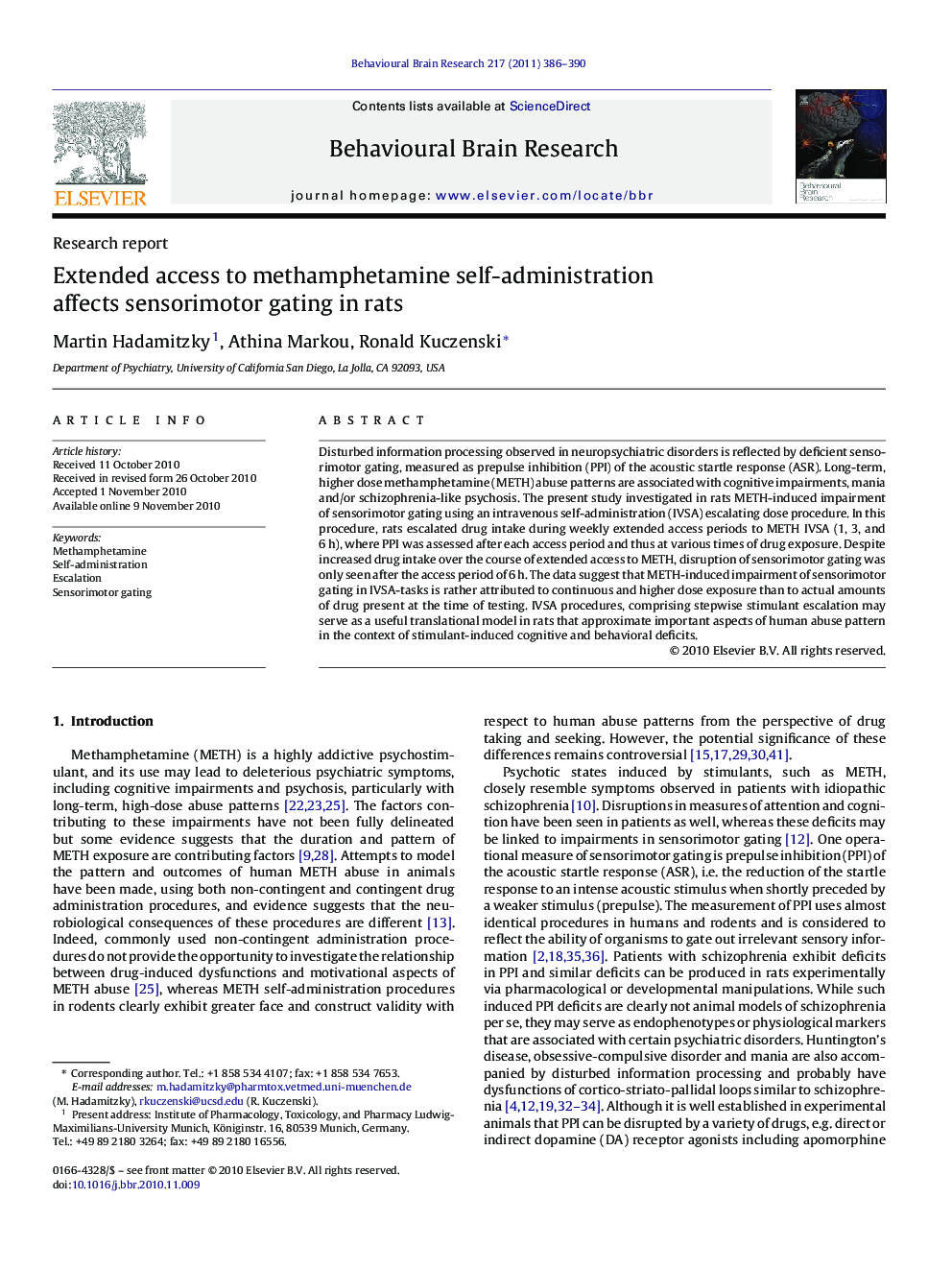| کد مقاله | کد نشریه | سال انتشار | مقاله انگلیسی | نسخه تمام متن |
|---|---|---|---|---|
| 6260001 | 1290015 | 2011 | 5 صفحه PDF | دانلود رایگان |

Disturbed information processing observed in neuropsychiatric disorders is reflected by deficient sensorimotor gating, measured as prepulse inhibition (PPI) of the acoustic startle response (ASR). Long-term, higher dose methamphetamine (METH) abuse patterns are associated with cognitive impairments, mania and/or schizophrenia-like psychosis. The present study investigated in rats METH-induced impairment of sensorimotor gating using an intravenous self-administration (IVSA) escalating dose procedure. In this procedure, rats escalated drug intake during weekly extended access periods to METH IVSA (1, 3, and 6Â h), where PPI was assessed after each access period and thus at various times of drug exposure. Despite increased drug intake over the course of extended access to METH, disruption of sensorimotor gating was only seen after the access period of 6Â h. The data suggest that METH-induced impairment of sensorimotor gating in IVSA-tasks is rather attributed to continuous and higher dose exposure than to actual amounts of drug present at the time of testing. IVSA procedures, comprising stepwise stimulant escalation may serve as a useful translational model in rats that approximate important aspects of human abuse pattern in the context of stimulant-induced cognitive and behavioral deficits.
Research highlightsⶠRats escalate drug intake during weekly extended access to METH self-administration. ⶠExtended access to METH results in disruption of sensorimotor gating. ⶠStepwise METH escalation tasks approximate important aspects of human abuse pattern.
Journal: Behavioural Brain Research - Volume 217, Issue 2, 1 March 2011, Pages 386-390